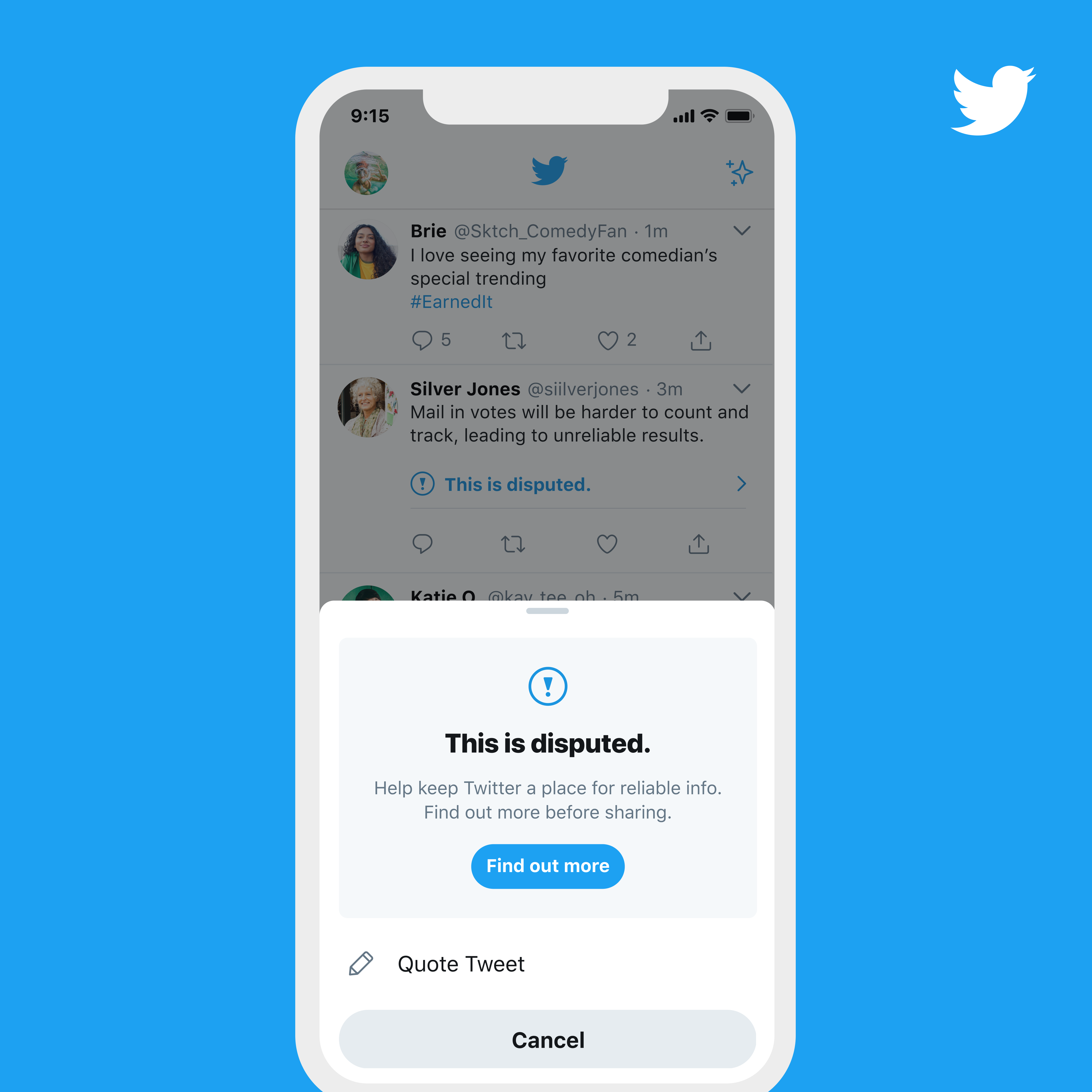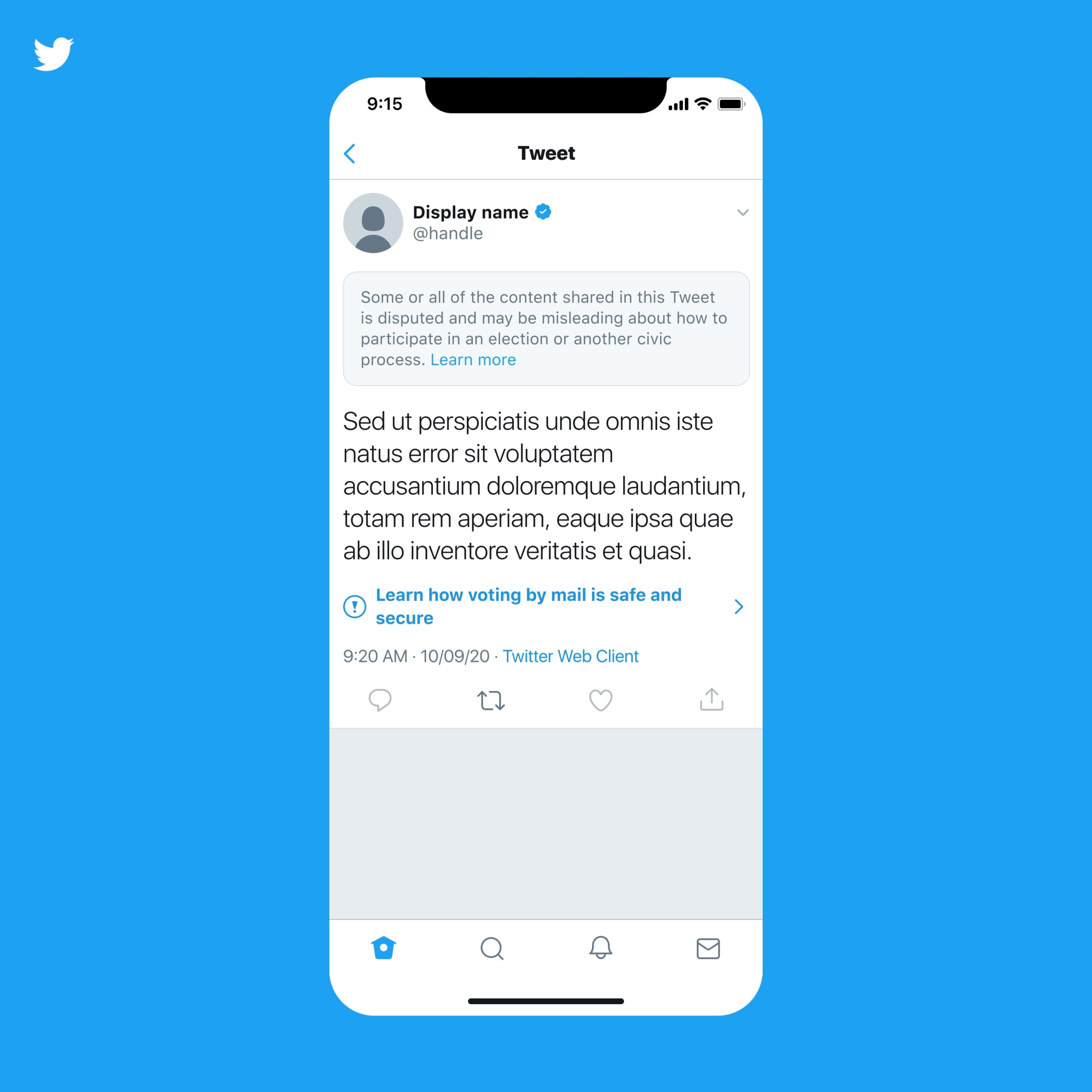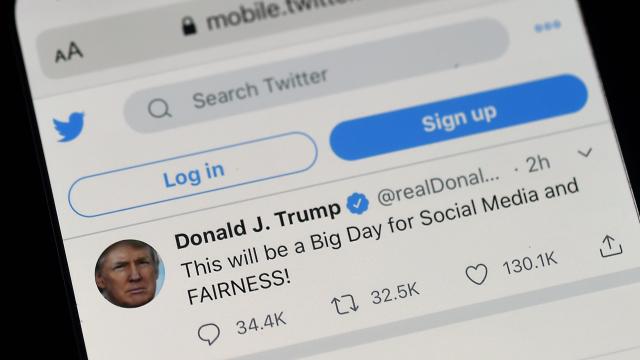Twitter on Friday announced changes that it hopes will limit the spread of disinformation surrounding the 2020 election, even if the bullshit is coming from inside the White House.
The tweaks are among the most aggressive by a major social media platform to muffle election-related misinformation to date. But with the future of American democracy hanging on a Donald Trump tweetstorm and mere weeks until Election Day, we’re all just going to have to cross our fingers that this does anything at all.
The first change to Twitter’s platform includes adding warning “prompts” to tweets with “misleading information” when users try to retweet them; users will also be encouraged to quote tweet — i.e., add their own commentary to a “disputed” tweet — rather than simply retweet the misleading information without additional context. Twitter won’t stop you from simply retweeting misinformation, but it hopes the “extra friction” will make you think twice before doing so.
Twitter will also add warning labels on tweets with misinformation from U.S.-based accounts with more than 100,000 followers or tweets that are going viral. It will do the same to U.S. political figures, including politicians (Trump, and the lackeys thereof) and campaigns (still Trump). Users will have to click through the warning label to see the tweet, and likes and retweets will be disabled, allowing only quote tweets instead.

Additionally, Twitter’s algorithms responsible for the “liked by” and “followed by” timeline intrusions — which insert second-order content and accounts into users’ feeds — are being shut down, at least for now. “This will likely slow down how quickly Tweets from accounts and topics you don’t follow can reach you, which we believe is a worthwhile sacrifice to encourage more thoughtful and explicit amplification,” Twitter executives Vijaya Gadde and Kayvon Beykpour wrote in a blog post.
Finally, we come to trending topics, which has historically been a never-ending avalanche of horrors. Twitter says it will now add additional context — such as articles summarizing a particular topic — to every topic that appears in the “For You” page for users in the U.S. The company began adding this context to some trends earlier this year.
Most of the changes will begin to roll out on Oct. 20 and stay in place until at least the end of the week of Nov. 3. The changes are likely temporary.
“Twitter plays a critical role around the globe by empowering democratic conversation, driving civic participation, facilitating meaningful political debate, and enabling people to hold those in power accountable,” Gadde and Beykpour wrote. “But we know that this cannot be achieved unless the integrity of this critical dialogue on Twitter is protected from attempts — both foreign and domestic — to undermine it.”
Twitter’s changes follow those of other major platforms aimed at limiting the spread of election-related misinformation. Both Facebook and Google will suspend political advertising after the polls close on Nov. 3. with the former additionally suspending political and issue ads in the week prior to the election; Twitter suspended ads from politicians and campaigns entirely late last year, but other groups remain able to run issue-based ads on the platform. Of course, ads are the least of our worries when it’s regular posts directly from the commander-in-chief that tend to cause the most damage.

Due to a historic reliance on mail-in voting during the ongoing covid-19 pandemic, it is unlikely America will know who the next president will be on the night of Nov. 3, or even in the days or weeks that follow. Trump and Vice President Mike Pence have both refused to agree to a peaceful transfer of power (Democratic challenger Vice President Joe Biden has vowed to concede peacefully if he loses), and it’s in the fragile moments between the close of polls on Election Night and the vote counts being certified that we have to worry about him falsely claiming victory.
Trump could try to steal the election on any number of platforms, but we all know where our poster-in-chief prefers to operate. On that front, the efforts seem destined to fail: Both Twitter and Facebook say they will add a “label” to content falsely claiming victory in the election. Nothing will stop these claims from being repeated, screenshotted, and broadcast on the evening news. If that’s the best we’ve got, you may want to start planning your escape route now.
